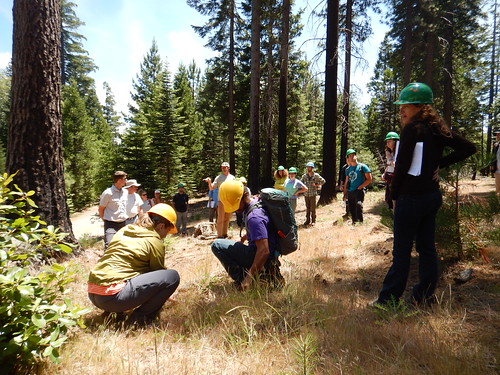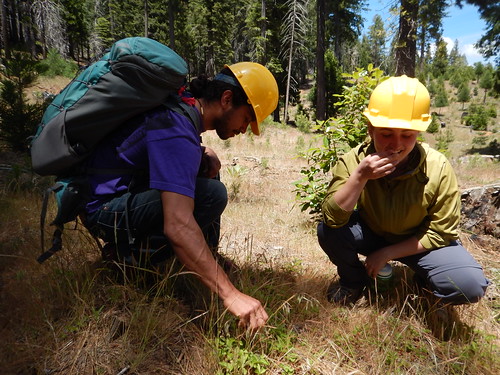
The U.S. Forest Service is working with The Wildlife Society to give Native American students a chance to work as research assistants for Forest Service scientists. Forest Service Research and Development funding provides stipends for living expenses for college juniors, seniors and graduate students during their mentorship, while the society provides administrative support and coordination.
The Research Assistantship Program selects Native American students who are interested in becoming wildlife biologists. They gain beneficial hands-on experience while working with a wildlife professional on an approved project. Five students have been selected for research assistantships in this second year of the program, which will last for approximately 12-14 weeks, beginning in late spring and running through late summer.
Bryan Begay, a student at Northern Arizona University, will be mentored by Deahn Donner, a project leader and landscape ecologist at the Forest Service’s Northern Research Station. Their project topic will be “Monitoring bat populations and sharp tail grouse habitat during a barrens ecosystem restoration.”
Elisha Flores, a student at UC Berkeley, and Chase Voirin, a graduate student at the University of Arizona, will be mentored by Serra Hoagland, a biological scientist at the Forest Service’s Eastern Forest Environmental Threat Assessment Center. Their project topic will be “Assessment of wildfire risk in treated and untreated Mexican spotted owl (Strix occidentalis lucida) territories on Tribal lands.”
La’akea Low, a student at the University of Hawai’i – Maui College, will be mentored by Richard Mackenzie, an aquatic ecologist at the Forest Service’s Pacific Southwest Research Station. Their project topic will be “Climate change impacts on recruitment/dispersal of native Hawaiian stream fauna.”
Paden Alexander, a student at the University of Montana, will be mentored by Mike Schwartz, Director at the Forest Service’s National Genomics Center for Wildlife and Fish Conservation. Their project topic will be “Combining Cutting-Edge Genetic Technology and Traditional Ecological Knowledge to Assess and Monitor Wolverine Distribution on the Flathead Indian Reservation.”
“Wildlife are not just names on lists of taxonomic classifications. They are our relatives with whom we live and from whom we learn. Students from Tribal communities are born into that way of thinking and are enriched by those relationships,” said Fred Clark, Director of the Office of Tribal Relations at the Forest Service. “My hope is that our educational system allows for indigenous perspectives to blossom and that future biological scientists approach their work with the most intense intelligence and the most reverent demeanor. We need mind, heart and spirit in biology,” he added.




